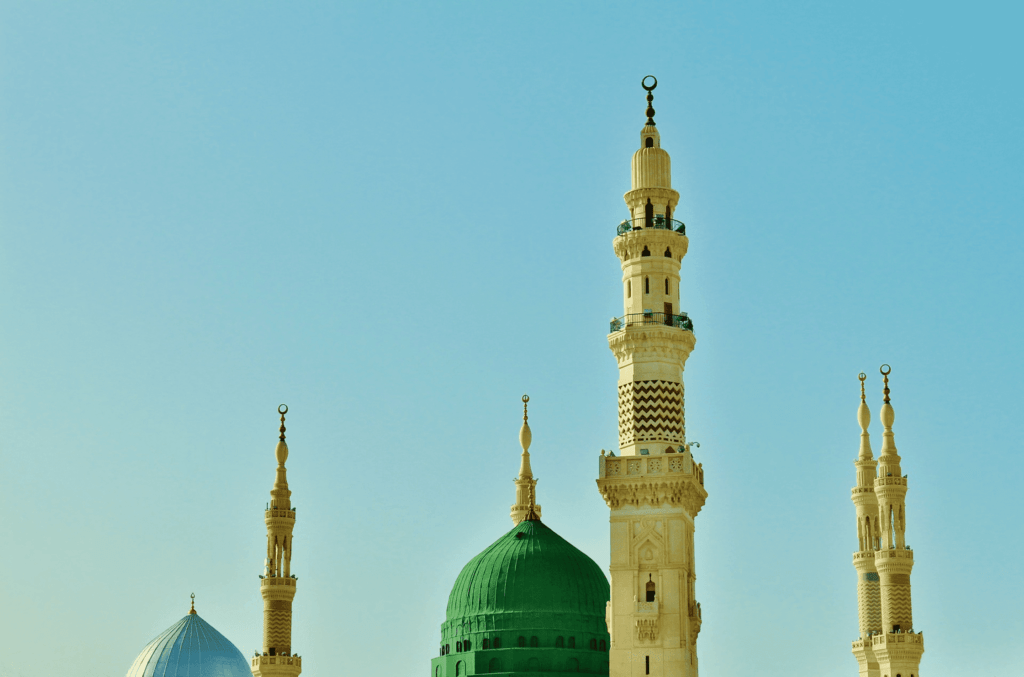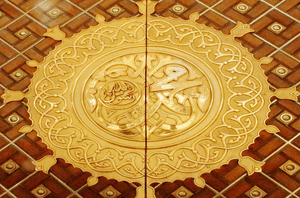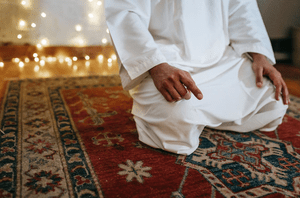The benefits of khushūʿ are many. Along with transforming your ṣalāh, it will also transform your life.
1. Khushūʿ ensures ṣalāh is easy and beloved for the one praying
Allah says, “And seek help through patience and ṣalāḥ, and indeed, it is difficult except for those who have khushūʿ; those who are certain that they will meet their Lord and that they will return to Him” (Q2:45-6).
If your ṣalāh feels like a chore, it is because there is an absence of khushūʿ in your ṣalāh. Once you experience khushūʿ, your ṣalāh will transform into a source of comfort and joy. It will become something you continuously seek recourse in and cannot live without.
2. Khushūʿ in ṣalāh averts evil and prevents immorality
Allah says, “Recite (O Prophet) what is revealed to you of the Book, and establish ṣalāh. Surely ṣalāh restrains one from shameful and evil acts. Truly, the remembrance of Allah is the greatest of all things. Allah knows what you do” (29:45).
If you pray ṣalāh as it is ought to be prayed, fulfilling its conditions and with complete concentration and humility, your heart will become purified. Eventually your heart will become illuminated. Your īmān will increase. You will incline more to goodness and abhor evil.
Being able to restrain yourself from sins and shameful behaviour is not only one of the greatest fruits of ṣalāh, but is in fact one of its primary purposes.
If you have ever wondered why performing our five daily prayers does not stop us from evil sins, the answer lies in the quality of our ṣalāh: our ṣalāh is rushed, distracted and aimless, and so it does not purify us nor stop us from sinning.
Ṣalāh may be compared to bathing five times a day. If after such frequent bathing, our bodies remained dirty, we would question the usefulness of such bathing. Likewise, if our morals and actions remain corrupt despite praying five times a day, we have to question the usefulness of our ṣalāh. We have to ask ourselves: Is our ṣalāh changing us? Are we gaining from ṣalāh what we are supposed to be gaining?
3. Khushūʿ leads to crying out of the fear of Allah
Having complete khushūʿ will undoubtedly lead you to cry out of the fear of Allah. Crying in this manner is a great deed which can save you from the Hell-fire and admit you into Paradise.
The Messenger of Allah ﷺ said, “A man who wept out of the fear of Allah shall not enter the Fire until the milk returns to the udder [an impossibility]” (Tirmidhī)
![ESHOT ASSETS [Recovered]-12](https://lifewithallah.com/wp-content/uploads/2021/12/ESHOT-ASSETS-Recovered-12-1024x813.png)
Thābit al-Bunānī (raḥimahullāh) experienced pain in his eyes. The doctor said to him, “If you promise me one thing, you will get better.” Thābit asked him, “What is that?” The doctor said, “Don’t cry.” Thābit (raḥimahullāh) remarked, “What good is there in an eye if it does not cry?”
Like other acts of worship, crying privately is superior to crying publicly. Of the seven individuals who will be provided shade on the Day of Judgement – the day where there will be no shade except His shade – will be the person who remembered Allah in private, and then shed tears (Bukhārī).
4. Khushūʿ enhances your understanding of the essence of ṣalāh
Praying with khushūʿ leads you to realising and appreciating the true meaning of ṣalāh, namely the turning of the heart and the body towards Allah, and attaining closeness to Him by it.
5. Khushūʿ is the key to attaining closeness to Allah
Khushūʿ in ṣalāh gives you the pleasure of conversing with Allah. It increases your faith, softens your heart, distances you from the world, and makes you long for Allah and His closeness in the hereafter.
6. Khushūʿ in ṣalāh will ease the standing in front of Allah on the Day of Judgement
Ibn al-Qayyim (raḥimahullāh) wrote, “The slave of Allah stands in front of his Lord on two occasions: the first is when he stands in his ṣalāh and the second is when he will meet Him on the Day of Judgment. Whoever fulfils the rights of the first standing, the second standing will be made easy for him. And whoever belittles, neglects and does not fulfil the rights of the first standing (i.e. ṣalāh), the second standing will be made very difficult for him.”
7. Khushūʿ in ṣalāh solves your problems and removes anxiety
Allah says, “And seek help through patience and prayer, and indeed, it is difficult except for those who have khushūʿ; those who are certain that they will meet their Lord and that they will return to Him” (2:45-6).
Similarly, Ḥudhayfah (raḍiy Allāhu ‘anhu) narrated, “Whenever anything distressed the Prophet ﷺ, he would pray” (Abū Dāwūd). Turning to prayer at times of difficulty was also the practice of the previous Prophets (Aḥmad).
“Shayṭan will not go near the person whose heart has khushūʿ.” – Sahl al-Tustarī (raḥimahullāh)
As cases of depression, anxiety and other mental illnesses rise, let us return to the prophetic remedy of resorting to ṣalāh. In addition to other forms of precautions and remedies, we should not underestimate the strength and healing power of ṣalāh.
8. Khushūʿ is the source of strength in your daily activities
Praying ṣalāh with khushūʿ will give you strength, enthusiasm and barakah (blessings) in your other daily activities. (See Q2:45 above). It will be your inspiration and the fuel in your journey to serve Allah and His religion.
“Let not your concern be the quantity of your actions. Rather, worry about perfecting them and doing them well; for a slave may be praying, but he is disobeying Allah in his ṣalāh.” – Wuhayb b. al-Ward (raḥimahullāh)








